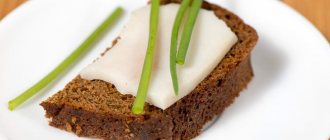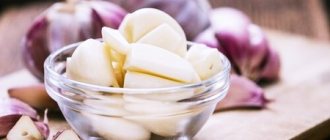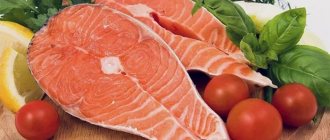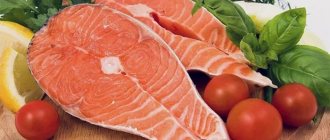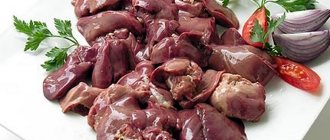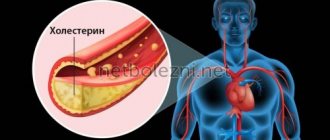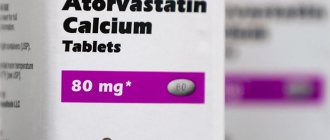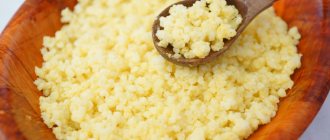The level of cholesterol in the blood is partly related to the nature of the diet. By adjusting the diet, its indicators can be reduced by 10-15%. The basis of therapeutic nutrition is the limitation of simple carbohydrates and animal fat, which we get from dairy products and meat. The priority is bran, fresh vegetables and fruits rich in fiber, as well as nuts and vegetable oils containing polyunsaturated fatty acids. They remove excess cholesterol from the gastrointestinal tract.
The question remains controversial: are potatoes good for high cholesterol? To answer this, let’s study the chemical composition, beneficial properties and effect on cholesterol levels.
Why is cholesterol dangerous?
Cholesterol is a fat-like substance found in cell membranes and produced by the gonads, adrenal glands, intestines, liver, and kidneys. A smaller part enters the body with food. The compound is involved in the synthesis of hormones, enzymes, and promotes the absorption of vitamin D. Cholesterol is measured in millimoles per liter (abbreviated mmol/l). If the levels exceed the norm of 6.7 mmol/l, it is time to take measures aimed at reducing cholesterol to an acceptable level.
Cholesterol in high doses is dangerous to human health and life. When its metabolism is disrupted and its level is high, irreversible changes in the vessels develop - in particular, atherosclerosis appears, which is dangerous for its complications in the form of coronary heart disease, myocardial infarction, stroke, sudden coronary death, embolism.
Increased levels of bad cholesterol become the main cause of early-onset Alzheimer's disease. In this case, a person’s memory, speech, mental abilities, and adequate perception of events are impaired. With high cholesterol, the blood supply to the liver, kidneys, intestines, and limbs suffers.
Important ! Controlling cholesterol levels in the blood is necessary for all people over 40 years of age, regardless of gender, and for those who are predisposed to cardiovascular diseases or suffer from hypertension and obesity.
Chemical composition, microelements and characteristics of potatoes
The biological value of potatoes is determined by its rich chemical composition. The content of valuable substances depends on the variety, maturity of the tubers, growing and storage conditions.
An average serving (100 g) of fresh, unpeeled tubers contains:
- 80 g water;
- 1.9 g protein;
- 0.1 g fat;
- 16.6 g carbohydrates: 14.2 g starch and 1.8 g dietary fiber.
Energy value - 77 kcal. The calorie content and nutritional value of the raw product after heat treatment increases (depending on the cooking method) and is:
- in fried potatoes - 276 kcal, 3.8 g protein, 15.5 g fat, 30.1 g carbohydrates;
- baked with peel - 92 kcal, 2.1 g protein, 0.2 g fat, 19 g carbohydrates;
- boiled in its jacket - 87 kcal, 1.9 g protein, 0.1 g fat, 13.9 g carbohydrates.
Potatoes contain amino acids, organic substances, dietary fiber, beta-carotene, B vitamins, ascorbic acid, vitamins E, H, K, and niacin that are important for the body.
Among the macroelements found: magnesium, sodium, calcium, potassium, sulfur, chlorine, phosphorus, silicon. Among microelements - high concentrations of cobalt (50% of the norm 100 g), chromium (20%), copper (14%), molybdenum (11.4%), manganese (8.5%), iron (5%). There is iodine, selenium, fluorine, and zinc in smaller quantities.
Useful properties of potatoes
Properly cooked potatoes and fresh tuber juice:
- improve the quality of hair and skin;
- normalize hormonal levels;
- ensure proper functioning of the nervous, digestive, urinary and respiratory systems;
- serve as a prevention of heart and vascular diseases;
- have a mild laxative effect;
- stimulate intestinal function;
- speed up metabolism;
- improve mood, normalize night sleep, fight depression, fear, apathy.
Potatoes are a nutritious and satisfying food. It contains high concentrations of dietary fiber, which, when entering the intestines, swell and create a feeling of fullness. A person does not have a need for snacks, while endurance and performance increase, which leads to stimulation of physical activity and a reduction in additional calories.
Complex carbohydrates do not turn into new fat deposits, but are absorbed over a long period of time, which fills the body with energy for a long time. For this reason, potatoes are ideal for weight loss.
For reference. A potato diet for 7 days will get rid of 3 to 5 extra pounds. Her menu includes 0.5 kg of boiled or baked potatoes + fresh vegetables, fruits, low-fat dairy products and plenty of liquid.
Potatoes contain a huge amount of fiber, which cleanses the intestines of waste and toxins, removes excess fluid from the body, normalizes digestion, activates metabolism, which has a beneficial effect on the state of the gastrointestinal tract as a whole.
Potatoes and fresh tuber juice are used in the therapeutic diet of people with gastrointestinal diseases of an erosive and ulcerative nature. The product envelops the mucous membranes, protects against destructive substances, impairs their absorption, and has a moderate analgesic effect, which alleviates symptoms of gastritis, gastric and duodenal ulcers.
Grated fresh potatoes are used externally for eczema, other skin diseases, wounds, and burns to speed up the healing process. Masks for the face, neck, and hands are made at home from boiled and fresh potatoes. It nourishes, moisturizes, tones the skin, gives healthy color and elasticity, and lightens dark circles under the eyes.
Boiled mashed potato tubers are an effective remedy in the fight against upper respiratory tract diseases. Inhaling steam from hot potatoes dilutes mucus well and facilitates its removal, softens an irritated throat, relieves pain and inhibits inflammatory processes.
Do potatoes have cholesterol?
Varieties grown in guaranteed safe conditions without the use of nitrates and other harmful chemical compounds do not naturally contain cholesterol . On the contrary, such potatoes contain valuable micro- and macroelements, vitamins, and antioxidants, which play an important role in normalizing lipid metabolism.
Do potatoes affect cholesterol levels?
Cholesterol concentration is increased by eating potatoes fried in oil and high-calorie dishes based on them. But potatoes cooked without fat have the following health benefits:
- iodine - normalizes the thyroid gland, prevents the deposition of fat on the walls of blood vessels, which reduces the risk of the formation of atherosclerotic plaques;
- chromium - reduces blood glucose levels, has a positive effect on microcirculation and hematopoietic processes, improves blood fluidity and viscosity;
- selenium - neutralizes the oxidative effect of free radicals and other substances, stimulates the formation of red blood cells, improves immunity;
- vitamin E - strengthens red blood cell membranes, improves blood circulation, supports metabolism in the heart muscle, regulates glucose levels;
- vitamin C (ascorbic acid) - provides a general strengthening effect on the walls of blood vessels and small capillaries, reduces their permeability, increases strength and elasticity.
This set of minerals is useful for people with hypercholesterolemia and prevents heart and vascular diseases.
Harm to the body from potato dishes
If you consume more than 300.0 grams of potatoes per day, then it can cause harm, as well as harm from potato dishes with the wrong preparation method, and the range of products for combining them in the dish.
It is necessary to select the composition of ingredients that do not increase the calorie content of the finished dish.
You should not eat potatoes for dinner, because they can be deposited in the subcutaneous tissue and contribute to the increase of extra pounds in the body.
Greened tubers, which contain a toxic component - solanine, are also dangerous for the body.
How much cholesterol is in cooked potatoes?
The level of cholesterol in potatoes largely depends on the method of heat treatment and the presence of additional ingredients used to prepare the dish.
In fried potatoes
Potatoes fried in oil have the highest cholesterol levels, especially if they were cooked with lard or animal fat.
For example, beef and lamb fat contain from 300 to 1100 mg/kg of cholesterol, while sunflower oil contains 18-26 mg/kg. It is undesirable for even absolutely healthy people to consume such potatoes. It negatively affects the functions of the cardiovascular system, leads to obesity, increases blood glucose levels, provoking the development of diabetes mellitus.
Baked
Potatoes baked in their skins are considered an ideal option for people with high blood cholesterol levels.
Firstly, tubers prepared without oil and animal fats contain no cholesterol.
Secondly, potatoes retain all the components beneficial to the human body.
Boiled in its jacket
Boiled potatoes in their skins contain practically no fat (0.1 g per 100 g of product), therefore they are used in dietary nutrition for hypercholesterolemia. However, when compared with baked potatoes, potatoes boiled in their jackets are less healthy, since most of the vitamins are transferred into the water during cooking.
Composition of potatoes
Starch is a key element in potatoes and has anti-inflammatory properties.
Potatoes contain:
- Starch.
- Fiber.
- Vitamins.
- Minerals.
- Carbohydrates.
Many claim that potatoes can increase weight and cause obesity. This is partly true. Starch and carbohydrates are the main enemies of a slim figure. However, starch easily goes into the water during cooking, and carbohydrates are deposited in the fat layer only at night. Therefore, the rule for a slim figure is very simple - we cook potatoes and eat them only during the day.
Among other useful elements, this vegetable contains large quantities of B vitamins, as well as vitamin K.
Blood cholesterol level
In the human body, pure cholesterol is present in small quantities. Basically, the compounds have low density (bad cholesterol) and high density (good) . If cholesterol levels are higher than normal, it is considered harmful to health and the lower its concentration, the better. In fact, for all systems to function properly, cholesterol must remain normal.
For healthy people, the norm for bad cholesterol is no higher than 4 mmol/l. For those who suffer from heart and vascular diseases, it is below 2.5 mmol/l.
The normal level of good cholesterol in the blood, regardless of age and gender, with satisfactory condition of the blood vessels and heart, is more than 1 mmol/l. In people with coronary heart disease who have had a heart attack or stroke, it is 1-1.5 mmol/l. Total cholesterol in the blood is no more than 5.2 mmol/l. If at a young age the norm is exceeded even slightly, this is considered a pathology.
Advice. Regular measurement of total cholesterol is necessary for women after menopause, men after 40 years of age, older people and those who have problems with the heart and blood vessels, excess weight, bad habits, and lead a sedentary lifestyle.
Beneficial features
Potatoes, based on those components in their composition, have the following beneficial properties on the body:
- The component in this product - vitamin C - activates the immune system and increases the protective functions in the body;
- Helps restore all vital processes inside the body after a protracted illness, or after a common cold;
- Potatoes have an anti-inflammatory effect on the body, as well as an enveloping property on the mucous membranes of the digestive organs;
- Potatoes reduce swelling in the periphery of the bloodstream and can strengthen arterial membranes with the help of vitamin B3 complex;
- Lowers the index of low-density lipid molecules, which helps improve the condition in the bloodstream and cardiac organs;
- Potatoes remove salts from the body, which has a positive effect on the body in the pathology of osteochondrosis;
- This product restores water balance and salt balance in the body.
Potato facts
Is it possible to eat potatoes if you have high cholesterol?
Nutritionists allow potatoes to be included in the diet of people with high cholesterol, but only in limited quantities - 300-400 g . Although in a small concentration, the tubers contain fats and oils, which, when consumed frequently in large portions, increase the level of cholesterol in the blood.
It is not recommended to eat potatoes for dinner after 18.00 pm. Tubers contain carbohydrates, the intake of which before bed will lead to an increase in subcutaneous fat. The method of culinary processing of potatoes is no less important.
Boiled, baked in a uniform without fat will be useful, but fried, French fries, chips or mashed potatoes with the addition of milk or butter are best not included in the diet if there are risk factors for hypercholesterolemia.
Can potatoes increase blood levels?
A health-hazardous condition occurs if the level of bad cholesterol is elevated. One of the reasons is obesity. If you eat a lot of fried potatoes or other high-calorie dishes based on them, this will lead to extra pounds and an increase in bad cholesterol.
It’s even worse if potatoes cooked in large amounts of oil or animal fat are seasoned with high-calorie spices and mayonnaise.
In no case should you eat potatoes in any form if you have elevated levels.
If there is a high concentration of cholesterol or the presence of risk factors for cardiovascular diseases, potatoes fried in oil are strictly contraindicated. You should not eat high-calorie foods made from it: chips, French fries, potato pancakes, roasts with fatty meat.
For reference. Potatoes in their skins baked over a fire are also harmful. The fruits lose all moisture and can injure the gastric mucosa.
Green tubers are absolutely inedible for everyone (regardless of cholesterol levels). Such potatoes contain solanine, which protects plants from bacteria, grains and insects. This substance is toxic to humans. However, adverse reactions in the form of depression and then stimulation of the nervous system, decomposition of red blood cells, and food poisoning are possible only when consuming several kilograms of unpeeled and thermally untreated green potatoes.
What other foods should you not eat if you have high cholesterol?
Elevated cholesterol levels indicate a risk of cardiovascular disease. To stay healthy and active for many years, you need to monitor your cholesterol levels from a young age. Fatty meats and meat products (sausage, frankfurters, offal, ham), and animal fats are excluded from the diet.
Soups are prepared in secondary broth, the first water is drained, the meat is washed, poured with clean water and cooked until tender. Choose lean varieties of meat or poultry (turkey, beef, chicken). Skin and fat from meat should not be used for food.
Margarine and butter are prohibited. Fats are limited to the use of vegetable oils (olive, flaxseed, sunflower) for preparing salads. Fatty fish, crayfish, crabs, canned fish, black and red caviar, mackerel, oysters, and shrimp contain a lot of cholesterol—they are also excluded from the daily menu.
Products made from butter and puff pastry, mayonnaise, ketchup, chocolate, fatty cottage cheese and cheeses, sour cream, cream, smoked meats, and offal (liver, kidneys, brains, lungs) are not allowed in the diet. Limit pasta, egg yolk, nuts, honey, sugar, alcohol (a glass of dry red wine once a week), ice cream, raisins, grapes, bananas, jams, and sweet carbonated drinks.
For reference. If you exclude the listed products, the functions of the gastrointestinal tract and cardiovascular system will improve, cholesterol levels and blood pressure will normalize, and weight will decrease.
Diet food
Only if potato tubers are used correctly and preparation technology is followed, nutritionists recommend introducing potato tubers into the diet.
The principle and goal of dietary nutrition with an elevated cholesterol index is to reduce blood lipid levels and reduce body weight:
- The menu should not contain more than 10.0% fat. When dieting, give preference to vegetable oils that contain a high percentage of polyunsaturated fatty acids - olive and sesame oil, soybean and flaxseed;
- Salt should be no more than 2.0 - 4.0 grams;
- The menu should contain up to 60.0% fresh and heat-treated vegetables;
- The daily eating regimen is no less than 5 - 6 times;
- There should be cereal porridge every day;
- Introduce fish and seafood, seaweed into the menu;
- Canned fish and meat are prohibited;
- Do not eat pickled, salted or canned fruits;
- Avoid eating white bread;
- You need to drink no less than 1500.0 milliliters of purified water per day;
- Replace coffee with green and herbal tea, as well as a decoction of viburnum and rose hips;
- Drink freshly squeezed fruit juices and fruit drinks, juices from citrus fruits;
- Stop smoking and drinking alcohol. During the diet, it is allowed to drink 50.0 milliliters of red grape wine per day, which promotes the resorption of cholesterol formations on the arterial endothelium;
- The menu should include fresh fruits and berries, as well as garden greens rich in minerals and vitamins;
- Fermented milk products must be low-fat;
- For dessert, you can eat a few pieces of dark chocolate, as well as marmalade without added sugar.
Only if the cooking technology is followed, nutritionists recommend introducing potato tubers into the diet.
Dish recipes
It is recommended to prepare the following potato dishes during the anti-cholesterol diet:
- Boiled potato tubers with baked sea fish and vegetables or with skinless chicken;
- Boiled tubers with olive oil and vegetable mix salad;
- Vegetable stew with added potatoes;
- Potato and skinless chicken soup.
Methods and recipes for cooking cholesterol-free potatoes
Most often, recipes use baked or boiled potatoes without fat and salt. Below we will look at several recipes on how to cook potatoes without cholesterol.
Boiled potatoes with herbs
This is a traditional dish of Russian cuisine.
You will need:
- potato;
- fresh herbs (parsley, dill);
- garlic;
- vegetable oil to a minimum.
The recipe is quite simple:
- Peel the tubers and boil until tender in salted water.
- Sprinkle hot potatoes with finely chopped herbs and season with vegetable oil.
Baked potatoes with apples and zucchini
The dish is ideal for a festive table and everyday diet:
- Peel the tubers, cut into slices, apples and zucchini into cubes.
- Lightly grease a baking sheet with vegetable oil, place potatoes, zucchini and apples on it, stir, add spices if desired (ideally dried herbs), and add salt.
- Bake in a preheated oven for 20-30 minutes at a temperature of +180...+200°C. Willingness to taste test.
It is good to combine potatoes with fresh vegetables and herbs, which contain a lot of plant fiber, which is necessary to cleanse the intestines of toxins.
Potatoes baked in the oven with garlic
This is a fragrant, tasty and satisfying dish. To prepare it you will need:
- potatoes - 500 g;
- garlic - 2 cloves;
- low-fat sour cream - 100 g;
- chicken egg - 1 pc.;
- salt, black pepper;
- greenery.
Recipe:
- Cut potatoes with skin into equal pieces.
- Mix with sour cream, finely chopped garlic, spices.
- Transfer to a baking dish and place in a preheated oven. Cook at a temperature of +180…+200°C for half an hour.
- Before removing the dish from the oven, beat the chicken egg for 5-7 minutes and pour over the potatoes. When serving, decorate with herbs.
